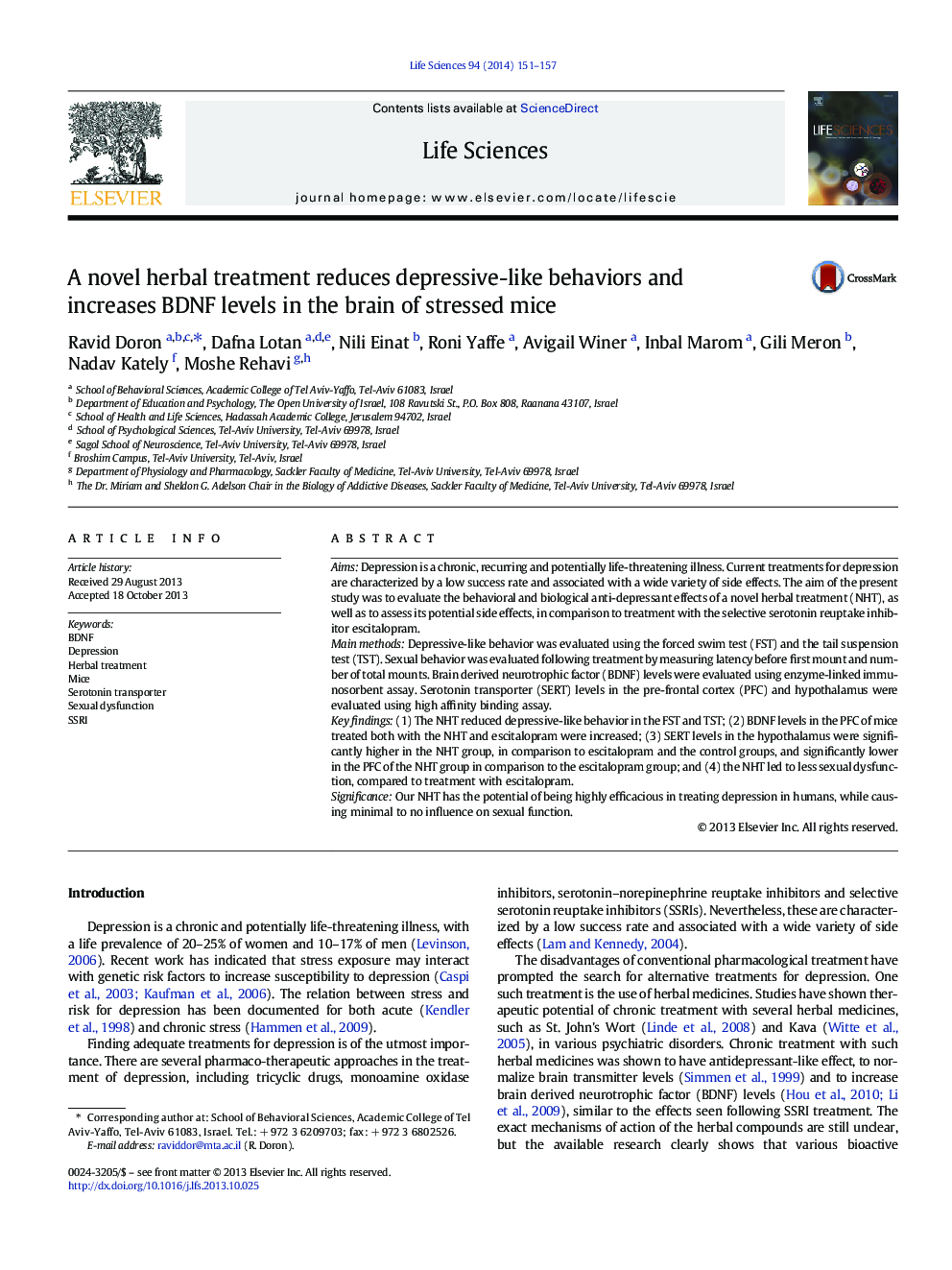| Article ID | Journal | Published Year | Pages | File Type |
|---|---|---|---|---|
| 5842282 | Life Sciences | 2014 | 7 Pages |
AimsDepression is a chronic, recurring and potentially life-threatening illness. Current treatments for depression are characterized by a low success rate and associated with a wide variety of side effects. The aim of the present study was to evaluate the behavioral and biological anti-depressant effects of a novel herbal treatment (NHT), as well as to assess its potential side effects, in comparison to treatment with the selective serotonin reuptake inhibitor escitalopram.Main methodsDepressive-like behavior was evaluated using the forced swim test (FST) and the tail suspension test (TST). Sexual behavior was evaluated following treatment by measuring latency before first mount and number of total mounts. Brain derived neurotrophic factor (BDNF) levels were evaluated using enzyme-linked immunosorbent assay. Serotonin transporter (SERT) levels in the pre-frontal cortex (PFC) and hypothalamus were evaluated using high affinity binding assay.Key findings(1) The NHT reduced depressive-like behavior in the FST and TST; (2) BDNF levels in the PFC of mice treated both with the NHT and escitalopram were increased; (3) SERT levels in the hypothalamus were significantly higher in the NHT group, in comparison to escitalopram and the control groups, and significantly lower in the PFC of the NHT group in comparison to the escitalopram group; and (4) the NHT led to less sexual dysfunction, compared to treatment with escitalopram.SignificanceOur NHT has the potential of being highly efficacious in treating depression in humans, while causing minimal to no influence on sexual function.
